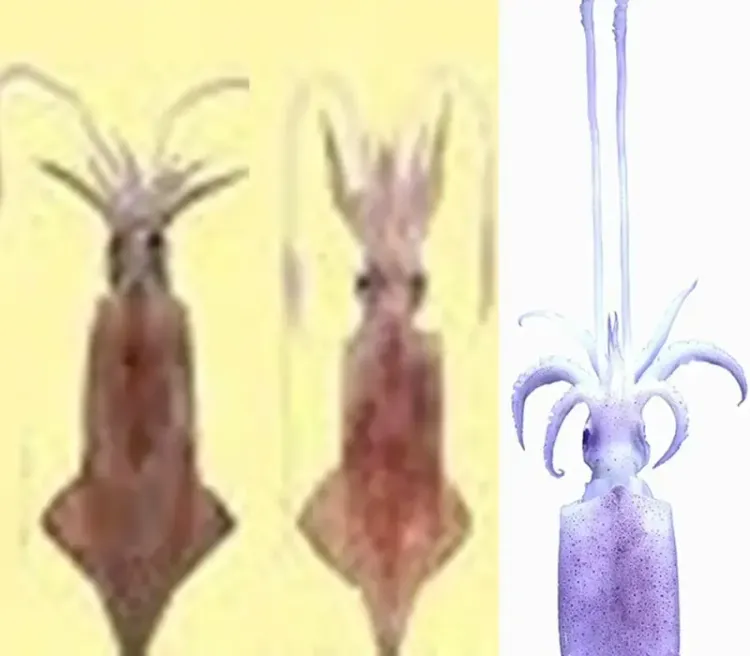CMFRI Discovers Genetic Links Between Indian Squid and Humans

Synopsis
Key Takeaways
- Study reveals genetic similarities between Indian squid and humans.
- Research led by Sandhya Sukumaran at CMFRI.
- Findings have implications for neuroscience and environmental science.
- Squid's intelligence linked to complex behaviors.
- Indian squid recognized as a model for studying brain evolution.
Kochi, Jan 28 (IANS) The ICAR-Central Marine Fisheries Research Institute (CMFRI) has effectively unveiled the gene expression dynamics of Indian squid (Uroteuthis duvaucelii), providing fascinating revelations about genetic parallels with humans and profound evolutionary connections.
This unexpected exploration into cognitive capabilities and neural development transcends marine biology, presenting significant ramifications for diverse disciplines, including neuroscience and environmental science.
The research was conducted by a dedicated team led by Sandhya Sukumaran, Principal Scientist at the Marine Biotechnology, Fish Nutrition, and Health Division of CMFRI.
Squids are celebrated for their sophisticated nervous systems, remarkable problem-solving abilities, and intricate behaviors such as camouflage and jet propulsion.
"This research decoded the gene expression profiles of this intelligent organism, unveiling its genetic resemblances with higher vertebrates, including fish and humans, indicating evolutionary links," stated Sukumaran.
"This implies that comprehending the squid's complex brain development could yield groundbreaking discoveries in neurobiology, intelligence, and the evolution of intricate nervous systems," added the senior researcher.
The investigation further revealed crucial information that could bolster research on neural circuits, memory, and even neurological disorders.
"This study has established the Indian squid as a pivotal model organism for exploring the evolution of intelligence and brain development across various species," remarked Sukumaran.
These squids are prevalent in the ocean, and researchers posit that their success can largely be attributed to their intelligence and complex behaviors, akin to humans, which likely assist them in evading fishing pressures and predators.
Regarding the significance of this study for marine fisheries, the researchers highlighted that these genetic discoveries could pave the way for innovative approaches to sustainable marine resource management and enhance understanding of how marine life adapts to environmental changes.










